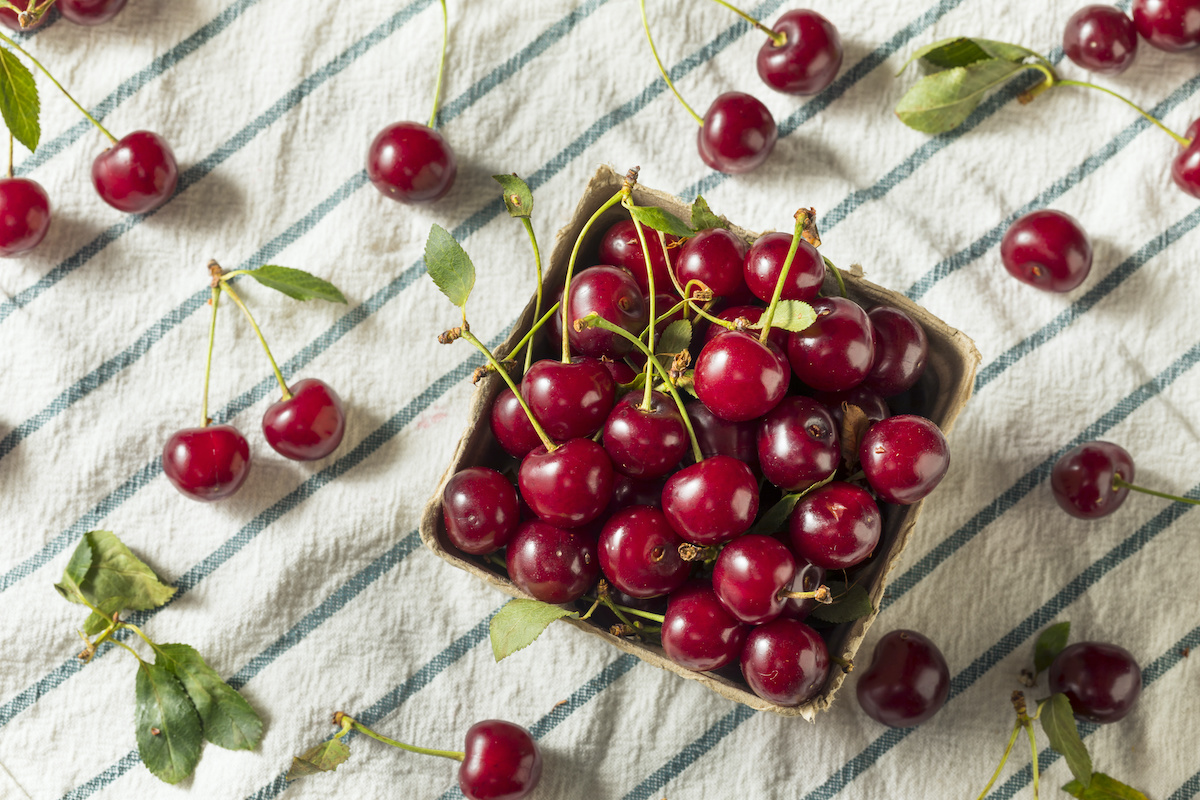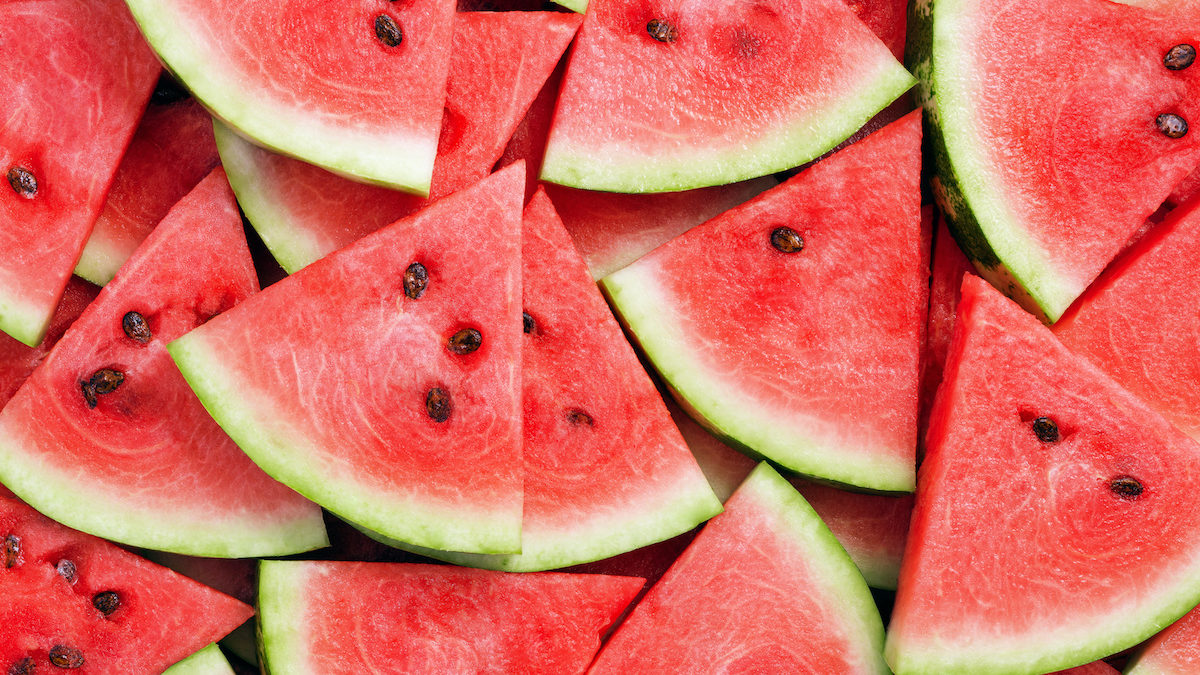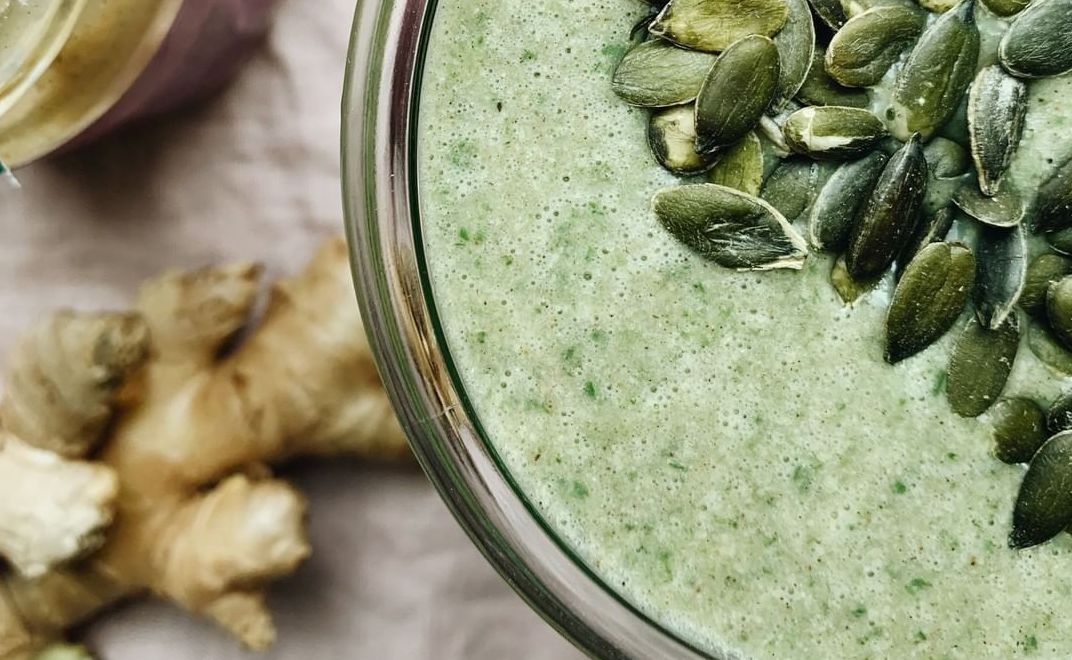4 Surprising Foods That Will Help Boost Your Post-Workout Recovery

One of the best things you can do after a killer workout is make sure your muscle-building protein stores are topped up with a vegan protein shake — although don’t worry about cramming it in during the so-called anabolic window, any time within 24 hours will do. But a protein shake isn’t the only food that can help ward off the DOMS and keep your body ticking over. Here we highlight four more plant-based foods to eat to help your body recover post-workout.
Watermelon
Anyone au fait with the world of post-workout hydration drinks will have come across the term electrolytes. For the uninitiated, electrolytes are essentially minerals that break down into electrically charged ions to help manage your body’s fluid balance, neural activity and muscle contractions.
Calcium, potassium and magnesium are the big three in the electrolyte world, and all are found in rich supply in juicy watermelon. Healthy levels of potassium, in particular, are thought to reduce symptoms of fatigue. Add to all this the fact that watermelon is around 90 percent water and you have a refreshing snack perfect for rehydrating after a sweaty sesh.

Tart Cherries
While sweet cherries might be the most common cherry variety found in supermarkets, the tart alternative is certainly growing in popularity. Growing research on tart cherries post-workout recovery powers might be behind the surge, with a study from the University of Vermont finding that strength loss and pain were significantly lessened in student athletes who had been given tart cherry juice after working out, versus those who had taken a placebo.
Exercise is important to your health, but it’s also known to produce oxidative stress. And tart cherries with their many antioxidant and anti-inflammatory agents help to combat this stress and repair tissues faster post workout, which might explain the results of the study.
When hunting tart cherries down the fruit aisle remember to look out for that fire truck red flesh, a subtle contrast from the darker coloured skin of sweet cherries.
Ginger
Ginger is arguably the least surprising addition on this list, mainly down to its inclusion on numerous post-workout smoothie ingredient lists (try this blackberry and ginger smoothie for size if you’re looking for a tasty, muscle-building concoction).
Like tart cherries, there are studies galore to back up ginger’s post-workout recovery cred, including a trial from the University of Georgia which found that a daily supplement of ginger reduced the amount of muscle pain caused by exercise by 25 percent.
The bounty of antioxidants within ginger are again likely to explain this reduction, as well as ginger roots ability to block prostaglandins, hormone-like compounds that cause muscle contractions.

Green Tea
Another rich source of antioxidants, green tea extract was found to reduce markers of muscle damage caused by exercise in a 2018 study published in Physiology and Behavior. Additionally a 2015 study found that 14 men who consumed green tea extract over a period of four weeks increased their running distance by 10.9 percent.
As well as improving athletic performance, green tea might also help body composition. Take research from Rutgers University, for example, which found that one of the main antioxidants in tea, Epigallocatechin gallate (EGCG), can inhibit an enzyme that breaks down the hormone norepinephrine.
Primarily released as part of the body’s response to stress, norepinephrine affects the way the brain pays attention and responds to events. But it also triggers fat burning. So, when EGCG inhibits this particular enzyme, the amount of norepinephrine increases, and fat breakdown is promoted.


















